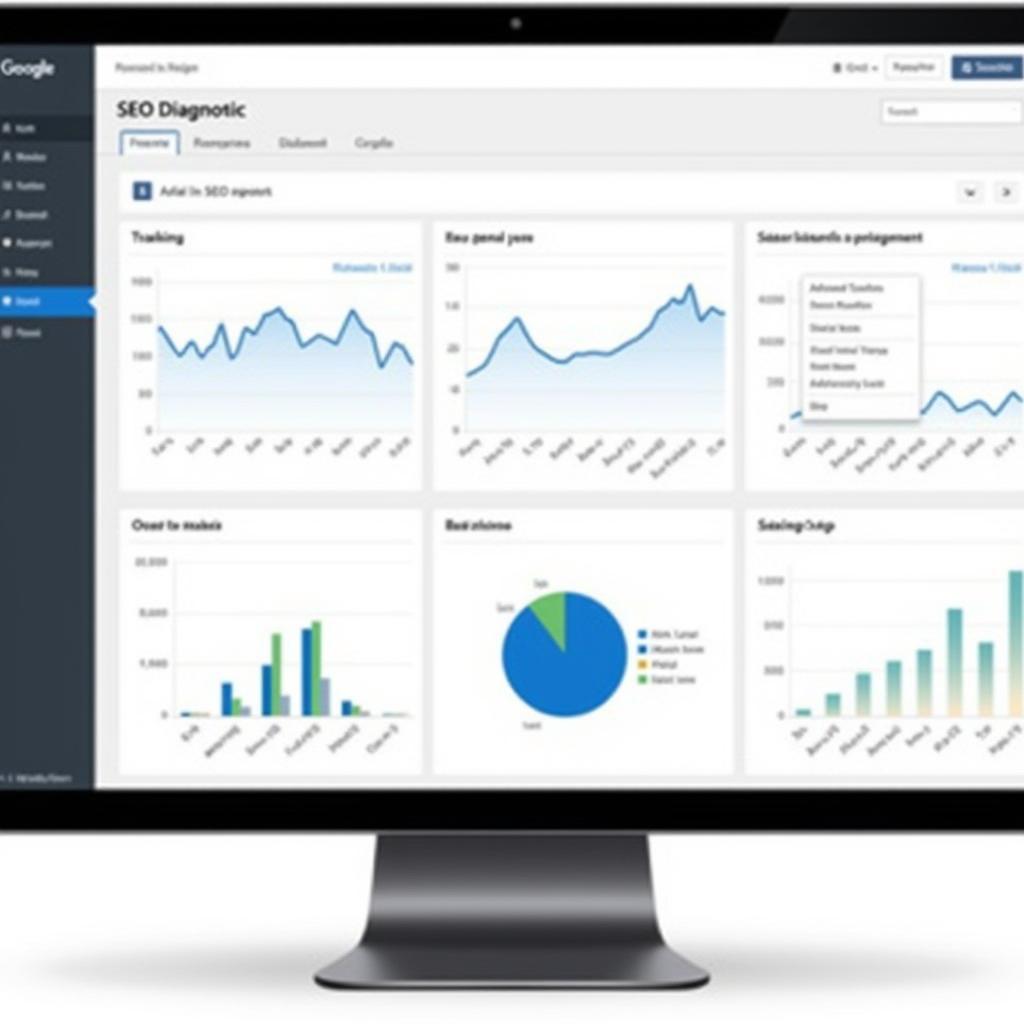In today’s tech-driven world, even our cars speak in ones and zeros. When your vehicle throws a temper tantrum (and let’s be honest, they all do at some point), understanding its language is key. That’s where the magic of Health Diagnostic Tools comes in. These sophisticated devices act as translators, deciphering those cryptic error codes and turning them into actionable insights.
[image-1|car-diagnostic-tool-in-action|Mechanic using a car diagnostic tool|A close-up shot of a mechanic’s hand plugging a diagnostic tool into a car’s OBD-II port, located under the dashboard. The image should highlight the connection point and the tool’s display screen, which shows a live data stream.]
The Power of Knowing: Why Diagnostic Tools Are Essential
Remember the days of relying solely on a mechanic’s intuition and a trusty wrench? Thankfully, those days are long gone. Automotive health diagnostic tools, like the benz diagnostic tool, have revolutionized vehicle maintenance and repair, offering a plethora of benefits for both car owners and professionals:
- Pinpoint Accuracy: Gone are the days of guessing games and unnecessary part replacements. Diagnostic tools provide precise readings of your car’s systems, identifying the root cause of problems with laser-like accuracy.
- Early Detection: Prevention is always better than cure. These tools can detect minor issues before they escalate into major (and expensive!) headaches, saving you time, money, and potential roadside breakdowns.
- Empowered Car Owners: Knowledge is power. Understanding your car’s health empowers you to make informed decisions about repairs, maintenance, and even potential purchases.
- Cost-Effectiveness: While a quality diagnostic tool requires an initial investment, it can save you significant money in the long run by preventing misdiagnoses and unnecessary repairs.
Navigating the World of Diagnostic Tools: Key Features to Consider
Choosing the right diagnostic tool can feel overwhelming with the vast array of options available. Here are some key features to consider:
1. Vehicle Compatibility:
Not all diagnostic tools are created equal when it comes to compatibility. Ensure the tool you choose supports your vehicle’s make, model, and year.
2. Functionality:
Diagnostic tools come with varying levels of functionality, from basic code readers to advanced systems capable of programming and module coding. Consider your specific needs and expertise level.
[image-2|different-types-of-diagnostic-tools|Various automotive diagnostic tools displayed on a workbench|A wide shot showcasing an assortment of diagnostic tools commonly used in automotive repair, including OBD-II scanners, multimeters, oscilloscopes, and pressure gauges.]
3. User Interface:
A user-friendly interface can make all the difference. Look for a tool with an intuitive design, clear navigation, and easy-to-understand data presentation.
4. Data Logging & Reporting:
The ability to log and review data over time is crucial for identifying intermittent issues and tracking vehicle performance. Some tools offer advanced reporting features that can be shared with mechanics or used for personal records.
5. Updates & Support:
The automotive landscape is constantly evolving. Choose a tool from a reputable manufacturer that provides regular software updates and reliable customer support.
Beyond the Basics: Advanced Capabilities of Diagnostic Tools
For professional mechanics and serious DIY enthusiasts, advanced diagnostic tools unlock a new realm of possibilities:
- Bi-Directional Control: This feature allows you to interact with your vehicle’s systems, not just read data. You can activate components like solenoids, relays, and even windows for comprehensive testing and troubleshooting.
- Programming & Coding: Advanced tools enable module programming and coding, allowing you to configure new components, update software, and customize vehicle settings.
- Live Data Streaming: Witness your car’s vital signs in real-time with live data streaming. This feature is invaluable for diagnosing complex issues and monitoring system performance during test drives.
[image-3|mechanic-analyzing-live-data-on-diagnostic-tool|Mechanic reviewing live data from a car’s engine on a diagnostic tool|The image focuses on the screen of a high-end diagnostic tool displaying various engine parameters in real-time, including RPM, coolant temperature, and oxygen sensor readings. A mechanic in the background is seen inspecting the engine bay.]
Choosing the Right Tool for You
- Casual Car Owner: If you’re mainly interested in reading and clearing basic error codes, a simple OBD-II code reader will suffice.
- DIY Enthusiast: For those who enjoy tackling their own repairs and maintenance, a mid-range diagnostic tool with live data streaming and some bi-directional control capabilities would be a worthwhile investment.
- Professional Mechanic: Professional-grade diagnostic tools with comprehensive functionality, advanced programming capabilities, and extensive vehicle coverage are essential for expert diagnostics and repair.
“Investing in the right diagnostic tool is like having an x-ray vision for your car. It empowers you to make informed decisions, save money, and keep your vehicle running smoothly,” says John Smith, Senior Automotive Engineer at ScanToolUS. “The ability to access and understand your car’s data is invaluable in today’s technologically advanced vehicles.”
Conclusion
Automotive health diagnostic tools have become indispensable in the world of car maintenance and repair. From basic code readers to sophisticated professional systems, these tools empower car owners and mechanics alike to diagnose issues accurately, perform preventative maintenance, and keep vehicles running optimally. By understanding your options and choosing the right tool for your needs, you can unlock a world of knowledge about your car’s health, save money, and enjoy a smoother, more confident driving experience.
Need help choosing the perfect diagnostic tool? Contact the experts at ScanToolUS today at +1 (641) 206-8880 or visit our office at 1615 S Laramie Ave, Cicero, IL 60804, USA. We’re here to guide you!


